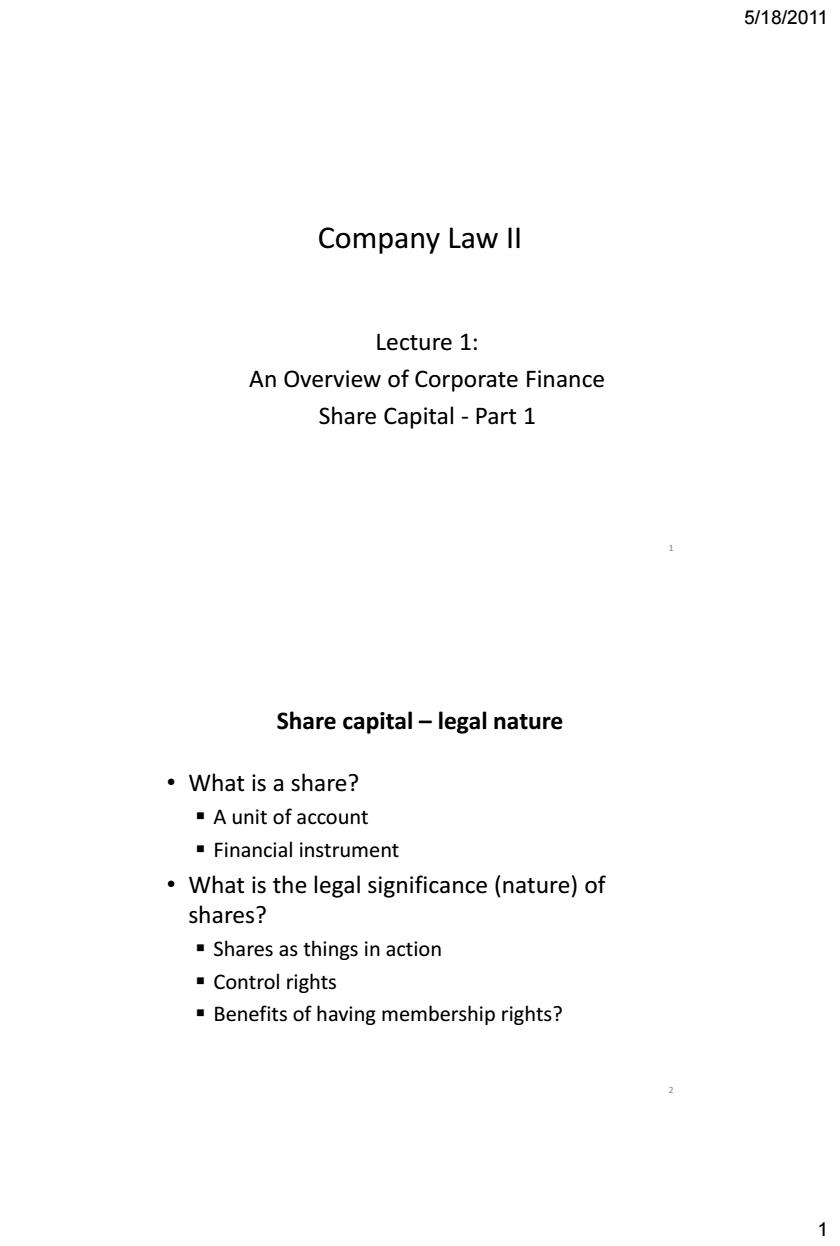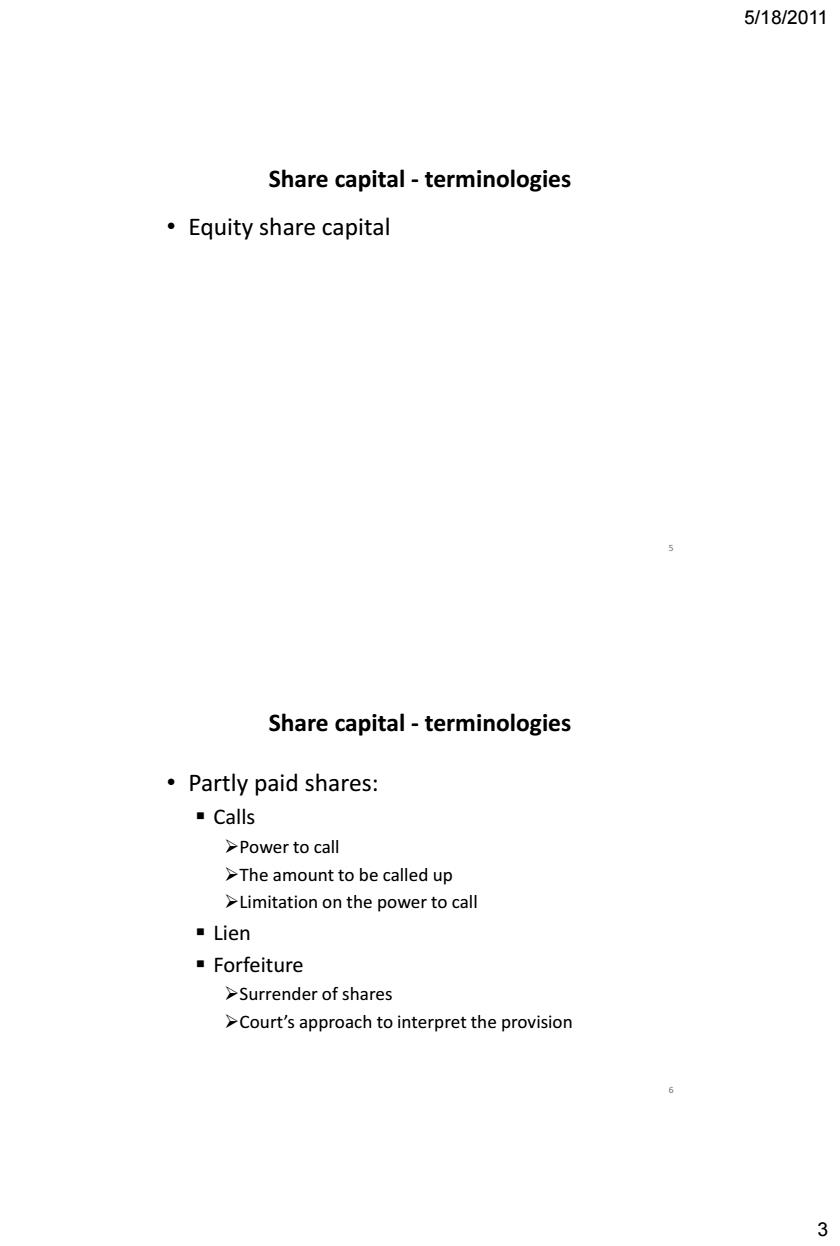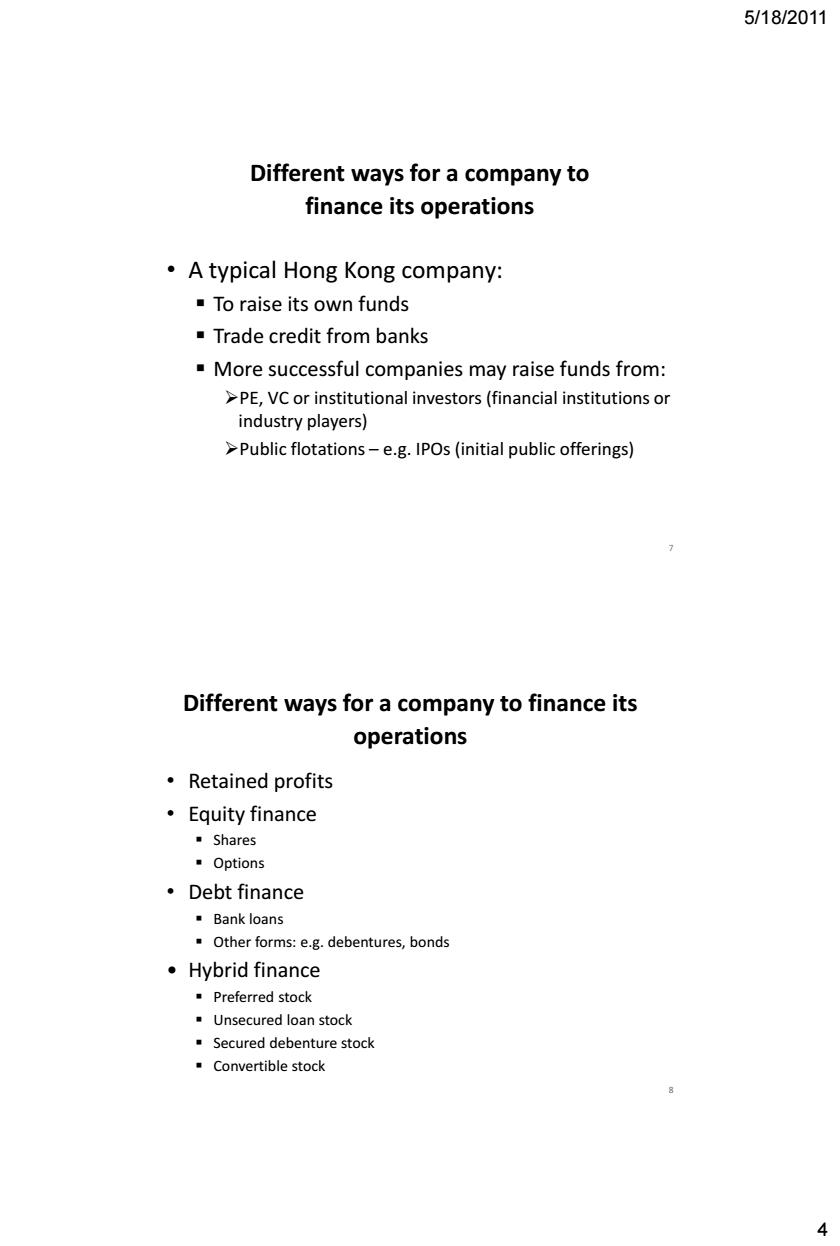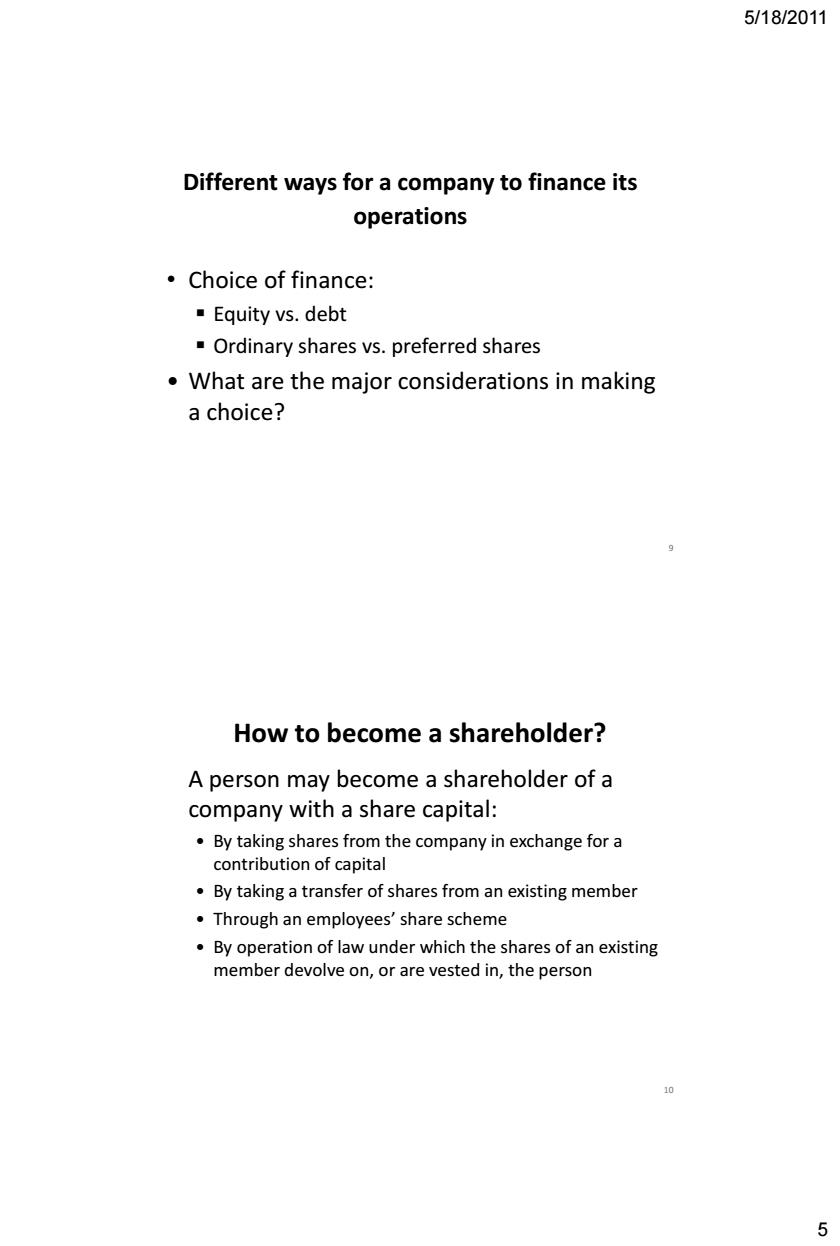
5/18/2011 Company Law ll Lecture 1: An Overview of Corporate Finance Share Capital-Part 1 Share capital-legal nature ·What is a share? ·A unit of account Financial instrument What is the legal significance(nature)of shares? Shares as things in action Control rights Benefits of having membership rights? 2 1
5/18/2011 1 1 Company Law II Lecture 1: An Overview of Corporate Finance Share Capital - Part 1 2 Share capital – legal nature • What is a share? A unit of account Financial instrument • What is the legal significance (nature) of shares? Shares as things in action Control rights Benefits of having membership rights?

5/18/2011 Share capital-terminologies ·Par(nominal)value ·Share of“no par value" ·Share premium ·Share capital Share capital-terminologies ·Types of shares: Ordinary (or equity,voting vs.non-voting) Preference(or preferred,participating,cumulative) ·Class Convertible preference (or preferred) Redeemable ·Deferred ■Bearer ·Bonus ·Fully paid ·Partly paid ■Forfeited 2
5/18/2011 2 3 Share capital - terminologies • Par (nominal) value • Share of “no par value” • Share premium • Share capital 4 Share capital - terminologies • Types of shares: Ordinary (or equity, voting vs. non-voting) Preference (or preferred, participating, cumulative) Class Convertible preference (or preferred) Redeemable Deferred Bearer Bonus Fully paid Partly paid Forfeited

5/18/2011 Share capital-terminologies ·Equity share capital Share capital-terminologies ·Partly paid shares: ·Calls >Power to call >The amount to be called up >Limitation on the power to call ■Lien ■Forfeiture >Surrender of shares >Court's approach to interpret the provision 6 3
5/18/2011 3 5 Share capital - terminologies • Equity share capital 6 Share capital - terminologies • Partly paid shares: Calls Power to call The amount to be called up Limitation on the power to call Lien Forfeiture Surrender of shares Court’s approach to interpret the provision

5/18/2011 Different ways for a company to finance its operations A typical Hong Kong company: To raise its own funds Trade credit from banks More successful companies may raise funds from: >PE,VC or institutional investors(financial institutions or industry players) >Public flotations-e.g.IPOs(initial public offerings) Different ways for a company to finance its operations ·Retained profits ·Equity finance Shares Options ·Debt finance 。Bank loans Other forms:e.g.debentures,bonds ·Hybrid finance Preferred stock Unsecured loan stock Secured debenture stock ·Convertible stock
5/18/2011 4 7 Different ways for a company to finance its operations • A typical Hong Kong company: To raise its own funds Trade credit from banks More successful companies may raise funds from: PE, VC or institutional investors (financial institutions or industry players) Public flotations – e.g. IPOs (initial public offerings) 8 Different ways for a company to finance its operations • Retained profits • Equity finance Shares Options • Debt finance Bank loans Other forms: e.g. debentures, bonds • Hybrid finance Preferred stock Unsecured loan stock Secured debenture stock Convertible stock

5/18/2011 Different ways for a company to finance its operations ·Choice of finance:: Equity vs.debt Ordinary shares vs.preferred shares What are the major considerations in making a choice? 9 How to become a shareholder? A person may become a shareholder of a company with a share capital: By taking shares from the company in exchange for a contribution of capital By taking a transfer of shares from an existing member Through an employees'share scheme By operation of law under which the shares of an existing member devolve on,or are vested in,the person 10 5
5/18/2011 5 9 Different ways for a company to finance its operations • Choice of finance: Equity vs. debt Ordinary shares vs. preferred shares • What are the major considerations in making a choice? 10 How to become a shareholder? A person may become a shareholder of a company with a share capital: • By taking shares from the company in exchange for a contribution of capital • By taking a transfer of shares from an existing member • Through an employees’ share scheme • By operation of law under which the shares of an existing member devolve on, or are vested in, the person